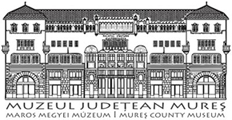Marisia - Maros Megyei Múzeum Évkönyve 29/2. (2009)
Cultură spirituală
254 Mari si a XXIX 1962 Az iskolai nevelés szerepe parasztságunk kultúrájában. Ethnograpia. LXXIII. 2. 497-511. SZABÓ László 1981 A paraszti olvasás és a folklór. Folklór-Társadalom-Művészet. vol. 7. 31- 59. SZÁVAI János: 1978 Az önéletírás. Gondolat Kiadó, Budapest. TÓTH István György: 1996 Mivelhogy magad írást nem tudsz... Az írás térhódítása a művelődésben a kora újkori Magyarországon. MTA Történettudományi Intézete, Budapest VÁRADI Ágnes /file/ Megőrzés és felejtés. Palimpszeszt I. 1. Sursa electronica: http://magyarirodalom.elte.hu/ palimpszeszt/01_szam/02.htm VARGA János 1964 Öreg Gyökér József krónikája. Agrártörténeti Szemle 3-4. 452-471. VOIGT Vilmos 1979a A folklór esztétikájához. Kossuth Kiadó, Budapest 1979b A folklór alkotások elemzése. Akadémiai Kiadó, Budapest 1990 A nemzetközi folklorisztika ma. Helikon nr. 1. 3-36. Williams, Raymond 2002 A kultúra elemzése. In: BÓKÁI Antal-VILCSEK Béla-SZAMOSI Gertrud-SÁRI László (red.): A posztmodern irodalomtudomány kialakulása, Osiris-Századvég, Budapest 385 -395. SOME HERMENEUTICAL ASPECTS OF WRITTEN POPULAR TEXTS The paper tries to outline a few theoretical problems of the analysis and comprehension of a particular status of texts: written popular texts. These texts were realized with practical purpose, therefore are remarkable from the anthropological analyse' view. The authors are not writers or poets, not even of functionary status, are not professionals, nor is writing for them a profession, just an occasional, secondary practice. The texts are kept with consideration, frequently are over read and interpreted. So, if we take the anthropological definition, that all texts, with the request of reading and interpretation are literature, we can claim that this text also function as
